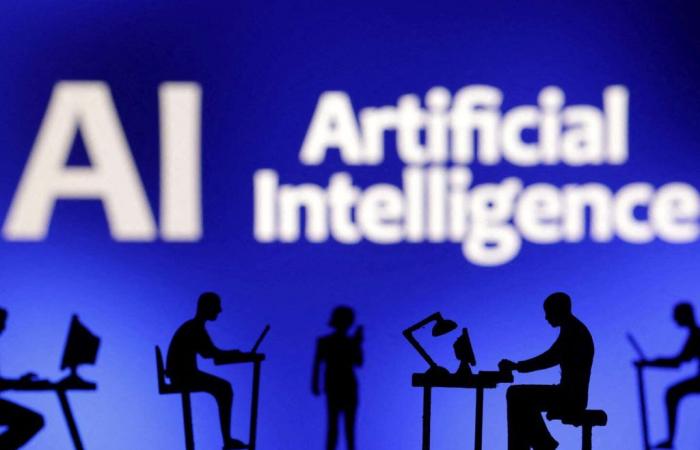Lhe rush towards artificial intelligence (AI) is taking place. Microsoft, Google, Amazon and Meta have invested massively, and a supplier of specialized chips like Nvidia is enjoying enviable success. Apple announces integrating ChatGPT into its high-end iPhones. French start-ups are raising impressive funds. It is true that generative content tools promise a feat for everyone: producing texts, images, sounds on demand; detect the undetectable, converse with robots and in all languages… However, the future of AI is still far from predictable.
Like all new techniques that promise universal progress, AI first arouses ecstasy or fear. Ecstasy, with the prospects of a life facilitated by an infinity of omniscient assistants. Fear, with the invisible manipulations, the pillaging of data and works, the announced upheavals in jobs. These very real dangers have already given rise to national and international regulations which aim to defend individuals and States, while reducing the domination of large American companies.
Read the article | Article reserved for our subscribers Artificial Intelligence: “Humans, who are the starting point of any digital device, must remain the arrival point”
Add to your selections
But these regulations do not determine future development strategies for AI, nor the uses that will be invented through experiments. Research has clearly shown that universal techniques are confronted with the paradox of dissemination subject to a double unknown (“Risk management in a double unknown situation”, Olga Kokshagina, Mines Paris PSL University thesis, 2014).
Unexpected scientific breakthroughs
The first unknown is that the possibilities of use are so vast that the most relevant business models have to be invented. And as the algorithms are still particularly demanding in terms of calculation time and quantity of data, even the digital giants are limited to boosting their classic applications. But there is no guarantee that it is these most visible applications that will really benefit from this additional intelligence. The invention of new products and new uses could change the face of AI and its players.
Second unknown: today, ChatGPT and generative algorithms rely on gigantic probabilistic structures for analyzing and composing content (“large language models”). Why should we stop there? The recent history of AI is based on colossal investments entrusted to start-ups. But the history of innovations is full of examples where industrial development strategies, if they are not supported by a research effort, have become bogged down or have been made obsolete by unexpected scientific breakthroughs (the transistor, digital photography, etc.). ).
You have 20.48% of this article left to read. The rest is reserved for subscribers.






